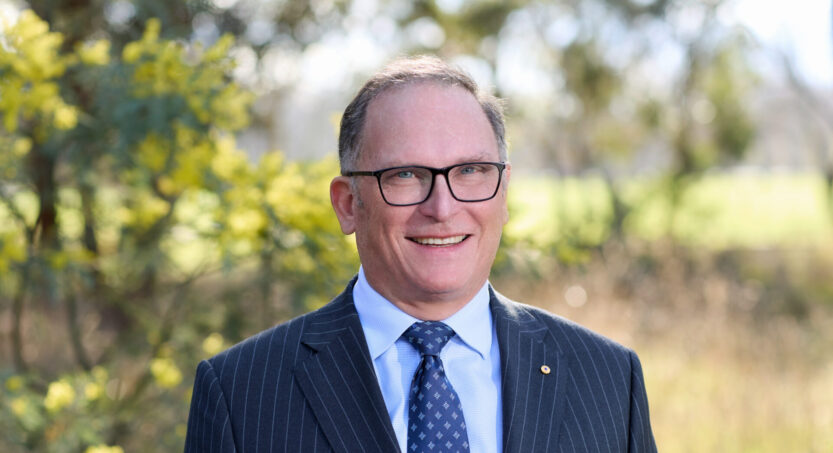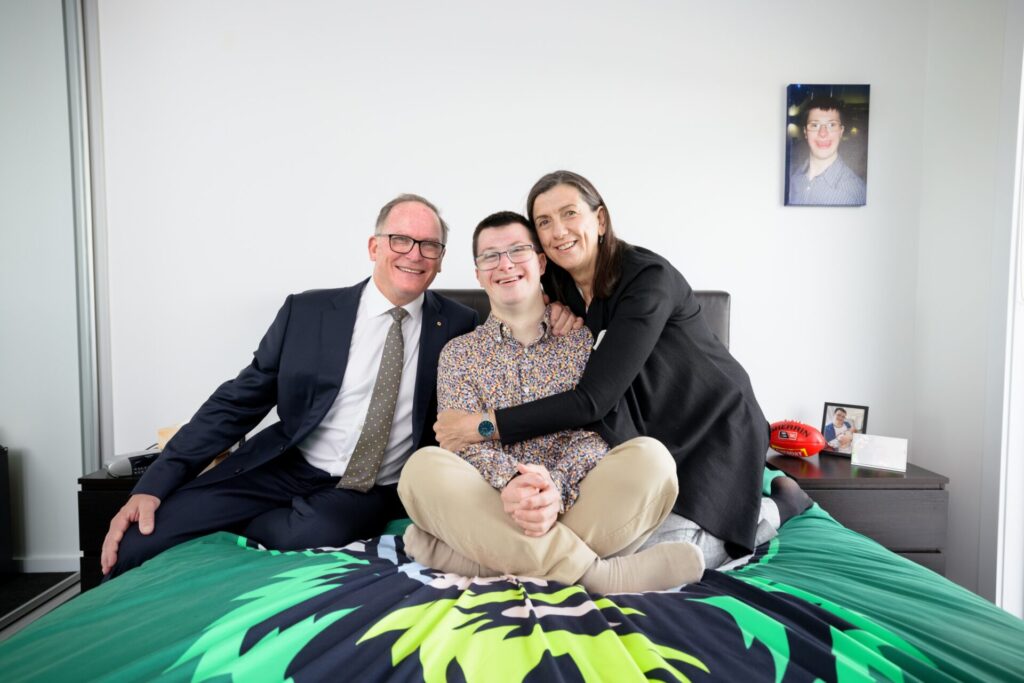Where home ownership is a stepping stone to independence

Innovation is so often driven by the insights and passion that come from personal experience and this is the case for Glenn Keys AO and the not-for-profit social enterprise Project Independence. The affordable housing provider was established with philanthropic support and is dedicated to helping people with intellectual disabilities achieve the goal that every individual deserves – the pride and security of home ownership and independent living. The impacts extend beyond bricks and mortar, and Project Independence is an inspiring example of what can be achieved when we reimagine what’s possible.
Glenn is the Founder and Executive Chairman of Canberra-based Aspen Medical, one of the world’s leading providers of outsourced healthcare solutions. So, what would drive Glenn to spend up to 30% of his week volunteering with Project Independence, an innovative social housing provider?
Glenn and his wife Amelda (Mel) have three children including Ehren, 30, who has Down Syndrome. About 15 years ago, when Glenn and Mel were thinking about future housing options for Ehren, they learnt that a good quality disability housing project in Canberra had a waiting list of 280 for just six rooms. Glenn decided to embark on a social housing project himself, thinking that they would build to rent out.
Then came a conversation with Ehren during the knock-down rebuild of the family home.
“I asked Ehren: ‘Why are you so busy you can’t unpack a box?’ And he said, ‘I’m designing the house I want to buy when I leave home,’
“That was a bit of a slap in the face,” said Glenn.
“I had assumed Ehren’s older sister and younger brother would buy homes, but I had never considered that an option for Ehren.
“He was a victim of my unconscious bias.”
Inspired by Ehren’s view of the need for a housing model that incorporated the potential of home ownership, Glenn had the idea of Project Independence.
‘Let’s assume ownership is possible’
“We had already formed a committee and I said to them: ‘Let’s assume ownership is possible,’” said Glenn.
Fast-forward 12 years and Project Independence is now the only home ownership model in Australia for people with an intellectual disability.
Project Independence now has 20 homes in the north of Canberra and 10 on the south side. A project is underway in Melbourne to redevelop a site to create 10 new homes, and a development of 10 homes has just been approved in Sydney.

So how does it work?
The Project Independence model supports people with an intellectual disability to become more independent. The approach enables people to buy their own home, which is designed in a community environment that empowers them to step into an independent life, utilising Supported Decision Making to help them grow their capability to truly live independently.
“Residents can stay for as short or long a period as they like and can sell with their equity returned,” said Glenn.
“One of the most joyful parts of Project Independence is that residents decorate their homes as they choose – it’s such a natural expression of self.
‘Now I get to pick my curtains’
“I was showing around a prospective resident – Lee – who said: ‘Now I get to pick my curtains. I just want some really nice curtains.’ Lee had lived in a group home for 38 years prior to moving into Project Independence.”
Glenn explained that they have also seen excellent employment outcomes for the majority of the residents.
“When we first opened in the north of Canberra, four out of 20 residents had a job. Now 18 of 20 have a job, with the vast majority on award wages.”
So, what’s next for Project Independence?
“We want to expand the model to include housing solutions for other disadvantaged groups such as older women without super or savings, women and families escaping family violence, and homeless veterans,” said Glenn. “All these groups are disproportionately over-represented in homelessness.”
“The Project Independence model is unique, proven, scalable and shovel ready, and a testament to the philanthropic support of individuals, community, business and government.”
To read more about this innovative and philanthropically supported social enterprise, visit: https://projectindependence.com.au/